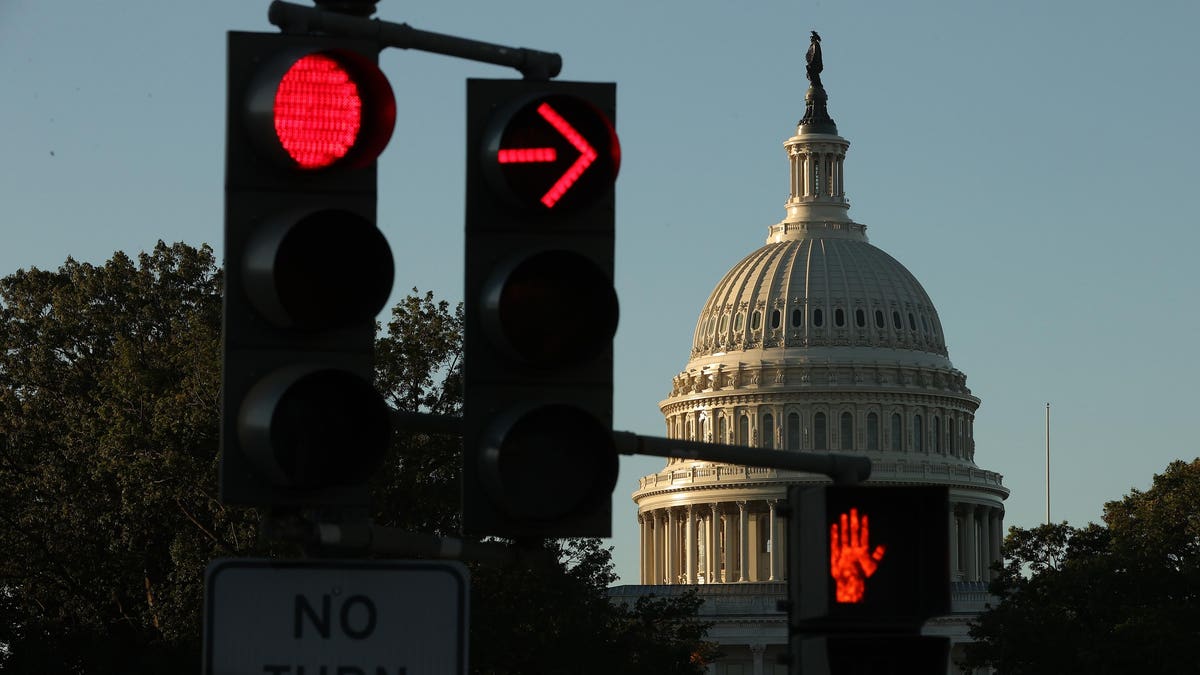Topline
The looming threat of a government shutdown this fall may shake up the U.S. economy and stock market, according to economists and strategists, further muddying the macro outlook after last week’s historic downgrade to the U.S.’ credit rating shook the confidence of some investors.
Key Facts
A possible federal government shutdown beginning October 1 would occur “at a particularly inopportune moment” after Fitch ratings agency lowered its grade for some U.S.-issued debt from AAA to AA+, according to Bloomberg economist Anna Wong.
The Washington closure would go into effect at the beginning of the government’s 2024 fiscal year in October should Congress fail to pass funding provisions to sustain operations for the upcoming period.
Many on Wall Street viewed the Fitch news as a nothingburger considering it was not based on new fiscal data and a similar downgrade a decade ago had little long-term material impact on stocks.
But added uncertainty from the shutdown could prevent the Federal Reserve from pivoting away from its tightening campaign this fall, TD strategist Gennadiy Goldberg told Bloomberg.
A shutdown in itself could bring pain to the slowly-growing U.S. economy: Goldman Sachs economists led by Jan Hatzius forecasted in June that a shutdown would knock off 0.2 percentage points from fourth-quarter gross domestic product for each week the government remains closed.
Crucial Quote
Citing the fiscal turbulence spurring Fitch’s downgrade, Morgan Stanley strategist Michael Wilson cautioned clients Monday “the unfinished earnings decline that began last year has further to fall” if government spending declines amid elevated political turmoil, sending yet another warning about U.S. stocks’ broad rally amid an uninviting macro backdrop.
Contra
Among the most prominent to dismiss Fitch’s announcement last week as little more than noise were hedge fund billionaire Daniel Loeb and former Treasury Secretary Larry Summers; Loeb called the downgrade a “cry by Fitch for attention,” while Summers characterized the agency’s decision as “bizarre and inept.” In emailed comments last week, Commonwealth Financial fixed income strategist Sam Millette explained the “Fitch downgrade didn’t tell investors anything they didn’t already know on the topics of rising political dysfunction and the state of the U.S. economy.”
Key Background
The Dow Jones Industrial Average (down 1%), S&P 500 (down 2%) and tech-heavy Nasdaq (down 3%) have each slumped since Fitch’s Tuesday afternoon downgrade. Historically, stock indexes post smaller returns during government shutdowns. The possible closure comes a few months after the U.S. narrowly avoided defaulting on its debt payment, which stunted stocks until a resolution was reached. Investors have been especially tuned into fiscal and monetary policy recently after the Fed hiked interest rates from near zero to over 5% over the course of 16 months.
Read the full article here




